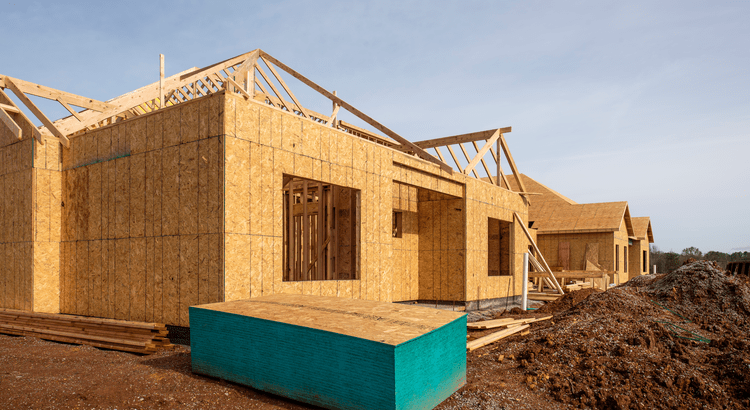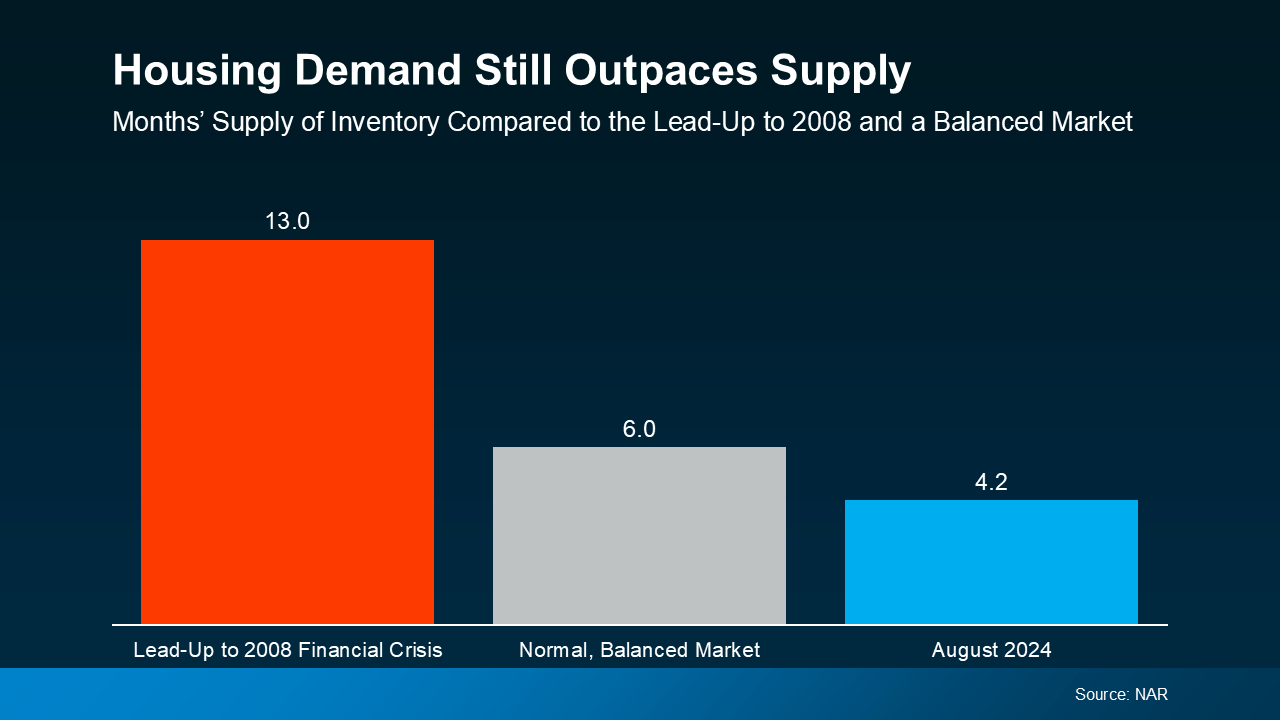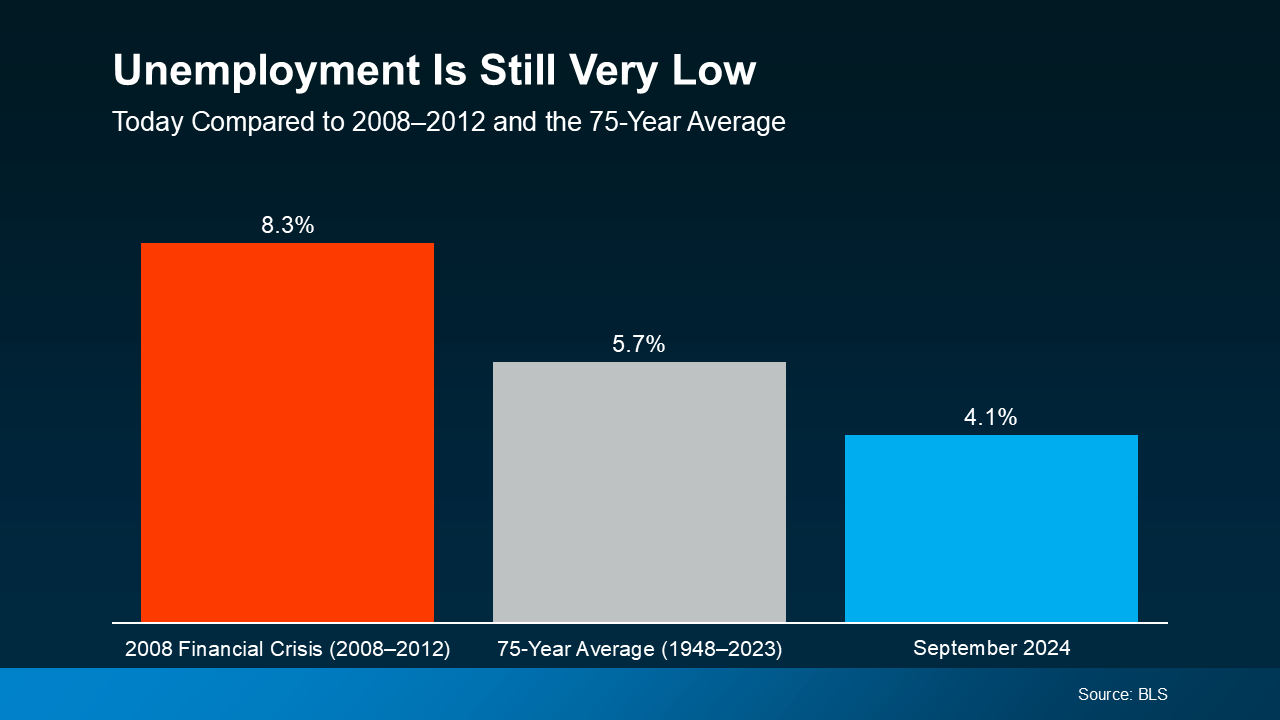Two Reasons Why the Housing Market Won’t Crash
Two Reasons Why the Housing Market Won’t Crash

You might have heard recent discussions about the economy and concerns over a potential recession. It's understandable that this kind of talk could make some people anxious about a housing market crash. Perhaps you’re feeling the same way. But here’s the reassuring news – there’s no reason to panic. The housing market is not in a position for a crash at this time.
As real estate journalist Michele Lerner explains:
“A housing market crash happens when home values plummet due to a lack of demand for homes or an oversupply.”
Keeping that definition in mind, here are two reasons why a housing market crash isn’t likely to happen anytime soon.
1. Demand for Homes Is Higher than Supply
One of the main reasons for the housing market crash in 2008 was the oversupply of homes. However, today’s market is quite different.
A balanced housing market typically has about a six-month supply of homes. If supply exceeds that, it means there are more homes than buyers, and if it’s below that, demand is higher than supply. The following graph, using data from NAR, helps illustrate the current market conditions:
The graph highlights housing supply during three different periods. The red bar shows a 13-month supply before the 2008 crisis—far too much inventory. The gray bar represents a balanced market with six months of supply, and the blue bar shows today’s supply at just 4.2 months.
In simple terms, more people are looking to buy homes than there are available homes for sale. This demand outpacing supply helps keep home prices stable or rising, which is the opposite of what happens during a market crash.
It’s worth noting that inventory levels vary by location. Some areas may be more balanced, while others could have a slight oversupply, which may impact local pricing. However, most markets are still facing a shortage of homes.
As Lawrence Yun, Chief Economist at the National Association of Realtors (NAR), explains:
“We simply don’t have enough inventory. Will some markets see a price decline? Yes. [But] with the supply not being there, the repeat of a 30 percent price decline is highly, highly unlikely.”
2. Unemployment Is Still Low
When people lose their jobs, they often struggle to make their mortgage payments, which can lead to forced sales or foreclosures—a major issue during the 2008 financial crisis. However, today’s employment situation is much more stable (as shown in the graph below):
This graph compares unemployment rates across three different periods. The red bar indicates the high unemployment rate of 8.3% during the 2008 financial crisis. The gray bar shows the 75-year average at 5.7%, while the blue bar reflects the current unemployment rate, which is significantly lower at just 4.1%.
At this moment, people are employed, earning incomes, and making their mortgage payments. This stability is one reason why we aren’t likely to see a wave of foreclosures like we did in 2008. Additionally, with so many people employed, many are in a position to buy homes, creating demand that puts upward pressure on prices.
Today’s Housing Market Is Stronger than in 2008
It’s natural to feel concerned when you hear discussions about a recession and economic uncertainty. However, it’s important to remember that the housing market is in a much stronger position than it was in 2008. According to Rick Sharga, Founder and CEO of CJ Patrick Company:
“Literally everything is different about today’s housing market dynamics than the conditions that led to the housing crisis.”
The demand for homes continues to exceed supply, and unemployment levels remain low. These two key factors play a crucial role in keeping the housing market stable and are unlikely to lead to a crash anytime soon.
Bottom Line
The housing market is in a much better position than it was in 2008, but it's essential to keep in mind that real estate is highly localized.
Staying informed about our specific market is always a wise approach. If you have any questions or would like to discuss how these factors are affecting our area, don't hesitate to reach out.
Categories
Recent Posts










GET MORE INFORMATION



